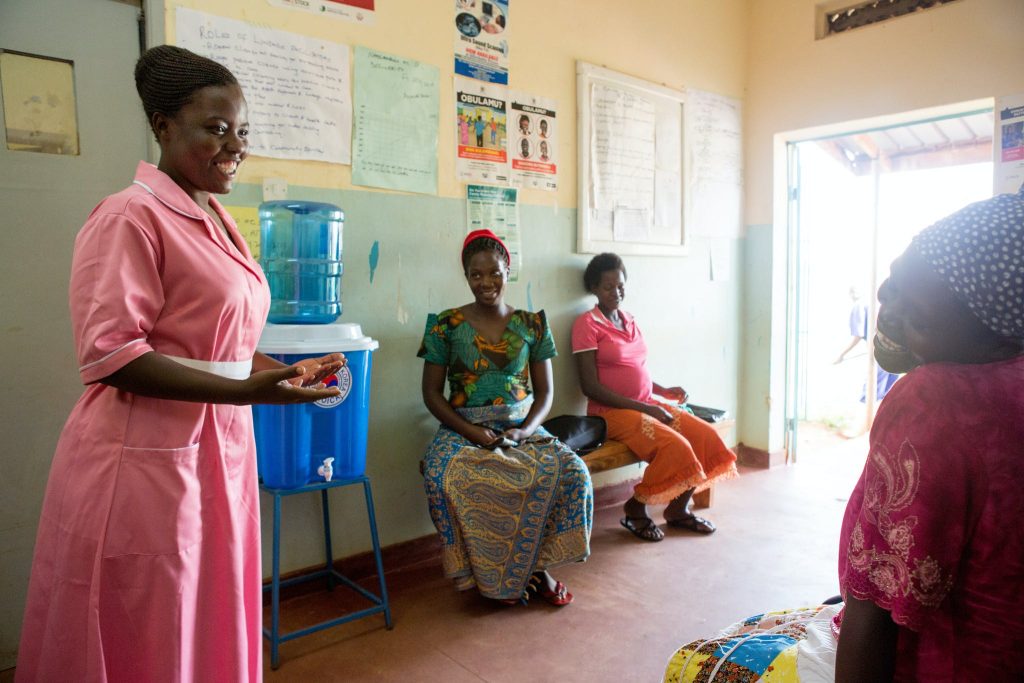In 2015, all governments stood together as they approved the Sustainable Development Goals and made a commitment to achieve health and well-being for all. To not leave anyone behind on this journey, it’s critical to have diverse voices – especially the voices of the most vulnerable – represented across all levels of global health programs and policies.
Under the leadership of Director-General Dr. Tedros Adhanom Ghebreyesus, the World Health Organization (WHO) has recognized that health for all isn’t possible without inclusive partnership.
In January, Dr. Tedros invited the UN Foundation and RESULTS to co-facilitate the formation of a task team to identify areas for enhanced collaboration between civil society organizations and WHO. It’s been an almost year-long process, but drawing on the insights of 21 civil society leaders we have engaged from 17 countries and after close consultations with constituencies around the world, the task team has put forward a set of recommendations to get us closer to achieving WHO’s strategic goals of promoting health, keeping the world safe, and serving the vulnerable.
Civil society organizations have a unique perspective of seeing where the rubber meets the road in global health and development. They represent, support, and organize communities at all levels and are often the most passionate advocates who can push decision makers to tackle new issues impacting people’s lives. Civil society organizations implement programs, deliver health services, and design and deploy new technologies. They research which programs are working, and more importantly, see which programs need to be changed to better meet people’s needs.
Their input is invaluable to ensure high-level policies are on the right track to tackle some of the biggest health threats facing us today.
In short, without maximizing and optimizing civil society engagement with WHO, we will simply not achieve the goals outlined in WHO’s General Programme of Work.
Fostering collaboration between a large global institution like WHO and diverse global voices is a challenge, but the task team’s recommendations, which will launch during a high-level event on Friday, December 7 at WHO headquarters in Geneva, have created concrete steps to help make this engagement achievable. A few highlights of the recommendations include:
- Policy Dialogue: Build in explicit, accessible opportunities for civil society to provide input into health policies and governance at all levels.
- Health Emergencies: Strengthen emergency response by expanding country-level leadership of the health cluster to include civil society.
- Data, Research, and Innovation: Develop a platform to crowdsource complementary, disaggregated data from civil society organizations.
- Gender Equality, Health Equity, and Human Rights: Establish an independent “Inclusivity Advisory and Oversight Group” at WHO to develop and implement policies on gender, youth, equity, and rights.
Additionally, the task team has developed specific recommendations for WHO, civil society organizations, and Member States on how each can strategically enhance collaboration.
While a bold step in the right direction, these ambitious recommendations need to be more than just recommendations. To turn the task team’s work into actions that advance health for all, it will take cooperation, leadership, (in some cases) resources, and accountability to fully implement.
Through the task team, we certainly have seen a significant and important level of cooperation and alignment between civil society and WHO, and Dr. Tedros’s personal commitment to this agenda is the kind of leadership that should be applauded.
We stand together with WHO and look forward to the next steps of implementing these recommendations over the coming year, ensuring that civil society and WHO are collectively accountable for their realization.
Learn More

